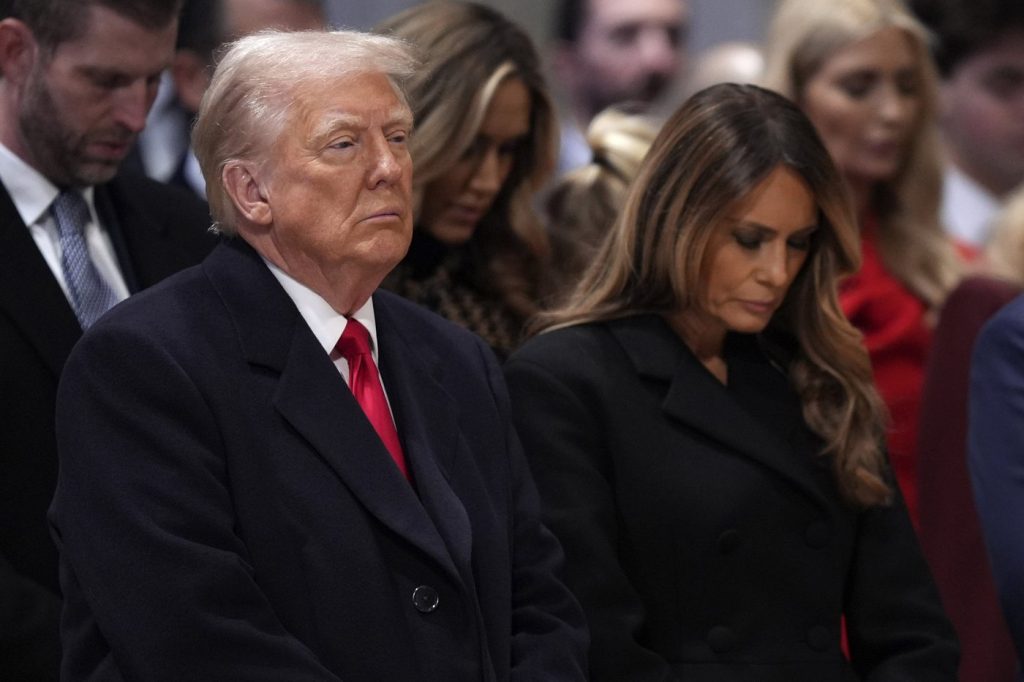On his first full day back in the White House, President Donald Trump engaged with congressional leaders, made a significant infrastructure announcement, and exercised a familiar aspect of his leadership style: firing individuals from advisory roles. Early on Tuesday, Trump took to his Truth social media network to announce the dismissal of over 1,000 presidential appointees deemed "not aligned with our vision." This included prominent figures such as chef and humanitarian Jose Andres, retired General Mark Milley, former State Department official Brian Hook, and former Atlanta Mayor Keisha Lance Bottoms.
Using his signature phrase "YOU'RE FIRED!" which gained popularity from his reality TV show, "The Apprentice," Trump made it clear that he intended to set a new tone for his administration. This move echoes actions taken by former President Joe Biden, who also removed numerous Trump appointees shortly after taking office, including former press secretary Sean Spicer.
Trump's administration aimed to build on his inauguration announcements with plans for a "massive infrastructure announcement." While White House Press Secretary Karoline Leavitt refrained from disclosing specifics ahead of time, she emphasized that the announcement would hold international significance. The term "infrastructure week" had previously become a punchline during Trump's first term, as repeated promises for major public works projects fell flat, with Trump often shifting focus to other issues.
In contrast, Biden has often mocked Trump’s inability to deliver on infrastructure, claiming his own administration successfully allocated billions for projects involving bridges, tunnels, and roads over the next decade. Trump's plans also included a proposal to ban Chinese companies from owning critical U.S. infrastructure in sectors like energy and technology, pressuring Chinese stakeholders to divest any assets jeopardizing American national security.
On the morning of his inauguration day, Trump attended a national prayer service at the Washington National Cathedral, a customary event for newly inaugurated presidents, marking the culmination of four days of inauguration-related activities. Subsequently, he was scheduled to confer with House Speaker Mike Johnson and Senate Majority Leader John Thune, along with other GOP leaders, in order to outline Republican legislative priorities.
Despite presenting an ambitious 100-day agenda, tensions erupted within the Republican-led Congress as they struggled to align on various strategies and goals, including tax cuts for the affluent and immigration reform. In the initial hours of his presidency, Trump signed a series of executive orders that distinctly diverged from the policies of his predecessor. Notable actions included pardoning individuals involved in the January 6, 2021, Capitol riots, withdrawing from international agreements like the Paris climate accords, initiating a crackdown on immigration by declaring a national emergency at the U.S.-Mexico border, and challenging the constitutional status of automatic citizenship for those born in the U.S.
Additionally, he signed an order pausing a ban on TikTok for 75 days to allow its Chinese parent company more time to find an approved buyer. This early flurry of actions signaled Trump’s intent to quickly reshape the U.S. government's priorities and assert his administration's direction.










